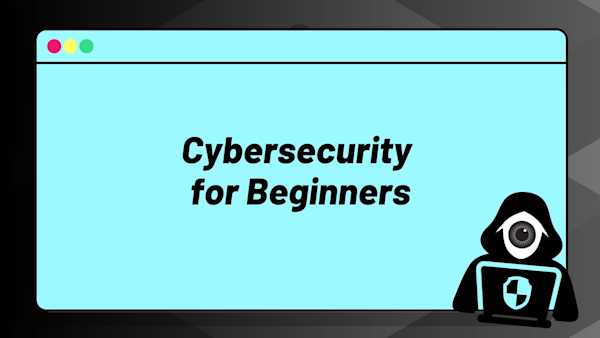What you'll learn
- Learn Penetration Testing from scratch to become a Bug Bounty Hunter and Web Security Expert
- Setting Up Your Hacking Lab: Kali Linux and Virtual Machines (Works with Windows/Mac/Linux)
- Discover, exploit, and mitigate all types of web vulnerabilities. Secure any of your future applications using best practices
- How to make money from bug bounty hunting and make a career of it
- Learn how to hack & attack systems with known vulnerabilities
- Website Enumeration & Information Gathering
- Bug Hunter and the Burpsuite Tool
- HTML Injections
- Command Injection/Execution
- Broken Authentication, Broken Access Control
- Bruteforce Attacks
- Security Misconfiguration
- Cross Site Scripting - XSS
- SQL Injection, XML, XPath Injection, XXE
- Logging & Monitoring best practices
- Web Fundamentals, Networking Fundamentals, Linux Terminal Fundamentals
This course is focused on learning by doing, not watching endless tutorials with nothing to show for it. You are going to learn how penetration testing works by actually practicing the techniques and methods used by Bug Bounty Hunters.
And you'll be learning in good company.
By enrolling today, you’ll also get to join our exclusive live online community classroom to learn alongside thousands of students, alumni, mentors, TAs and Instructors.
Most importantly, you will be learning from industry experts (Aleksa & Andrei) that have actual real-world experience working on security for large companies and websites/apps with millions of visitors.
No matter what you're background, previous experience or your current job, we make this course approachable for you by providing two paths.
1 Don't know how to code yet?
No problem at all. We've included three bonus sections to get you up to speed so you can start pentesting in no time at all.
2. Already know how to code?
Great. You're going to start off right away by creating your own virtual hacking lab to make sure we keep your computer safe throughout the course and get our computers properly set up for penetrations testing.
Here is what the course will cover to take you from Zero to Web Security Mastery
We guarantee you this is the most comprehensive, modern, and up-to-date online course on bug bounty hunting, penetration testing, and web security.
Unlike many other tutorials you'll fine online, we aren't going to waste your time teaching you outdated techniques and topics.
1. Introduction To Bug Bounty:
In this section, we answer "What is a Bug Bounty?" and "What is Penetration Testing?". We'll also explore the career path of a Pen Tester.
2. Our Virtual Lab Setup:
Create your virtual lab that we will use throughout the course (Kali Linux machine). Install a vulnerable virtual machine ("VM") called OWASPBWA that we will attack. Create an account on the TryHackMe Cyber Security training platform.
With almost every vulnerability, we will cover an example on TryHackMe and also on our vulnerable VM.
3. Website Enumeration & Information Gathering:
This is where we start with the practical Bug Bounty / Website Penetration Testing. We cover numerous tactics and tools that allow us to gather as much information about a certain website.
For this, we use different tools like Dirb, Nikto, Nmap.
We also use google hacking which is a useful skill to have once tools are not available.
4. Introduction To Burpsuite:
This is a very important tool for a Bug Hunter. Pretty much every Bug Hunter out there knows about this tool (and probably uses it). It has many different features that make hunting for bugs easier. Some of those features are crawling the webpage, intercepting and changing HTTP requests, brute-force attacks and more.
5. HTML Injection:
This is our first bug. It's also one of the easiest so we start with it. HTML injection is essentially just finding a vulnerable input on the webpage that allows HTML code to be injected. That code is later rendered out on the page as real HTML.
6. Command Injection/Execution:
Our first dangerous bug. Injecting commands is possible when the server runs our input through its system unfiltered. This could be something like a webpage that allows us to ping other websites but doesn't check whether we inputted a different command other than the IP address that it needs.
This allows us to run commands on the system, compromise the system through a reverse shell and compromise accounts on that system (and all the data).
7. Broken Authentication:
This is another vulnerability that occurs on websites. It essentially refers to weakness in 2 areas session management and credential management. It allows the attacker to impersonate legitimate users online. We show different examples through cookie values, HTTP requests, Forgot password page etc.
8. Bruteforce Attacks:
This can be a problem even if the website is secure. If the client has an easy and simple password set, it will also be easy to guess. We cover different tools used to send lots of passwords on the webpage to break into an account.
9. Sensitive Data Exposure:
This isn't a vulnerability in the system. Instead it's when developers forget to remove important information during production that can be used to perform an attack. We cover an example where a developer forgets to remove the entire database from being accessible to regular users.
10. Broken Access Control:
Access control enforces policy such that users cannot act outside of their intended permissions. Failures typically lead to unauthorized information disclosure, modification or destruction of all data, or performing a business function outside of the limits of the user.
Here we cover a vulnerability called Insecure direct object reference. A simple example would be an application that has user IDs in the URL. If it doesn't properly store and manage those IDs an attacker could potentially change the ID and access the information of another user.
11. Security Misconfiguration:
We've added this as a separate section. However, all the previous vulnerabilities also belong to it. Here we show an example of a vulnerability where the admins of websites haven't changed the default credentials for a certain application that runs on their server.
12. Cross Site Scripting - XSS:
This is a big vulnerability and is very common in many websites out there. This vulnerability allows us to execute JavaScript code on the webpage.
This is due to user input not being well filtered and processing the input as javascript code. There are 3 main types of XSS which are Stored, Reflected and DOM based XSS. We cover these 3 plus some unusual ones.
13. SQL Injection:
Another big vulnerability out there and a really dangerous one. Many websites communicate with the Database, whether it being a database that stores product information or user information.
If the communication between the user and the database is not filtered and checked, it could allow the attacker to send an SQL query and communicate with the database itself, allowing them to extract the entire database or even delete it.
There are a couple of types of SQL injection such as Error based or Blind SQL injection.
14. XML, XPath Injection, XXE:
XXE or XML External Entity is a vulnerability that allows an attacker to interfere with a website that processes XML data. It could allow the attacker to run a reverse shell or read files on the target system making it another severe vulnerability.
15. Components With Known Vulnerabilities:
Even if the website might not be vulnerable, the server might be running some other components/applications that have a known vulnerability that hasn't been patched yet. This could allow us to perform various types of attacks depending on what that vulnerability is.
16. Insufficient Logging And Monitoring:
Logging and monitoring should always be done from a security standpoint. Logging allows us to keep track of all the requests and information that goes through our application.
This can help us determine whether a certain attack is taking place. Or, if the attack already happened, it allows us to examine it a little deeper, see which attack it was, and then apply that knowledge to change the application so that the same attack doesn't happen again.
17. Monetizing Bug Bounty Hunting:
After practicing and covering all the vulnerabilities, we'll show you how you can make money from your new knowledge and skills.
We give you different platforms that can be used to start your career as a Bug Hunter and use one platform as an example to show how a bug bounty program works and what to pay attention to when applying.
18. Bonus - Web Developer Fundamentals:
This section is for anyone that doesn't have basic knowledge in Web Development or doesn't know exactly how websites work and are structured.
19. Bonus - Linux Terminal:
This section is for anyone that doesn't have basic knowledge of using the Linux Terminal. This is important as we will be using it throughout the course.
20. Bonus - Networking:
Fundamentals of networking and some basic terms to know as Penetration Testers and Bug Bounty hunters.
What's the bottom line?
This course is not about making you just code along without understanding the principles so that when you are done with the course you don’t know what to do other than watch another tutorial... No!
This course will push you and challenge you to go from an absolute beginner to someone that can earn income as a Pentester or Bug Bounty Hunter and become a Web Security Expert 💪.
And if you're serious about starting a full-time career in Ethical Hacking, you can take this course as part of our step-by-step Ethical Hacker Career Path.
How do we know?
Because thousands of Zero To Mastery graduates have gotten hired and are now working at companies like Google, Tesla, Amazon, Apple, IBM, JP Morgan, Facebook, Shopify + other top tech companies.
They are also working as top freelancers getting paid while working remotely around the world.
And they come from all different backgrounds, ages, and experiences. Many even started as complete beginners.
So there's no reason it can't be you too.
And you have nothing to lose. Because you can start learning right now and if this course isn't everything you expected, we'll refund you 100% within 30 days. No hassles and no questions asked.
When's the best time to get started? Today!
There's never a bad time to learn in-demand skills. But the sooner, the better. So start learning today by joining the ZTM Academy. You'll have a clear roadmap to developing the skills to get hired and advance your career.
Join Zero To Mastery Now




